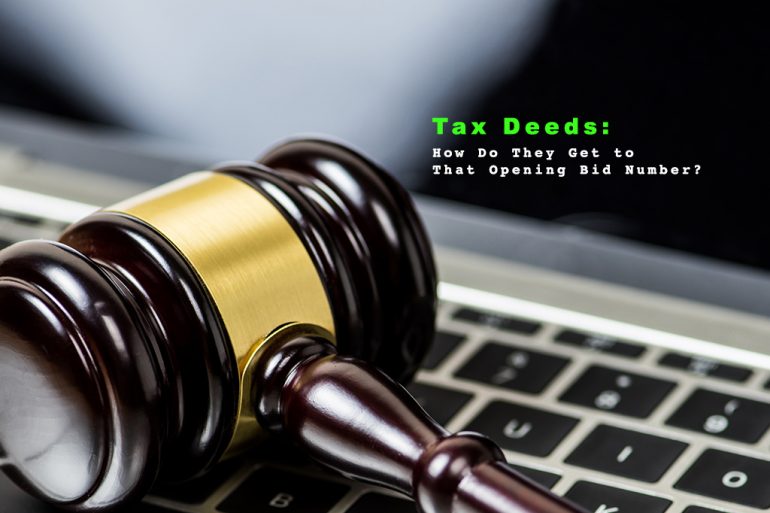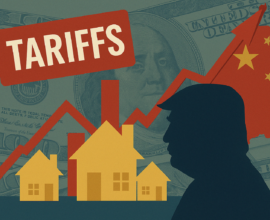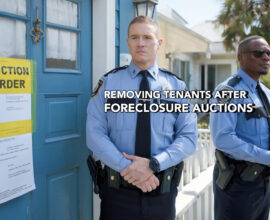Tax Deeds: How Do They Get to That Opening Bid Number?
Whether you’re a novice or an experienced investor, you’ll be better prepared to bid at online tax deed auctions if you know more than your competition. Prepared investors do their research on the physical condition of the property, look at the properties scheduled for sale, request or do a title search, and look at the tax deed file before they bid on the property. But just how does the clerk get to that starting bid amount, and why does it matter?
The Life Cycle of a Tax Deed
Let’s take a journey through the life of a tax deed. It all starts with delinquent taxes. Property tax bills come out on November 1 of any particular property tax year, and property owners have until March 31 of the next year to send payment to the tax collector’s office. This is no time to procrastinate. Depending on when they pay their taxes, property owners get a discount.
- November payments get a 4% discount
- December payments get a 3% discount
- January payments get a 2% discount
- February payments get a 1% discount
- March payments receive no discount
If no payment is made by the end of March, the property is considered tax delinquent the next day, April 1. It then becomes available for sale of tax certificates.
Tax certificates are like bonds for unpaid taxes. The tax collector’s office holds a public auction where investors bid down on an acceptable interest rate of return (starting at 18%) in exchange for paying delinquent taxes on someone else’s real property.
For 60 days after the delinquency, a 3% interest rate accrues on those certificates or unpaid taxes if no tax certificates are sold. This rate is also the lowest possible rate of return on a tax certificate. After that 60-day period, the unpaid taxes accrue interest at the tax certificate rate, or at the rate of 18% per year.
What Does a Tax Certificate Have to Do with Anything?
The tax certificate holders trigger tax deed sales. Anyone who has held a tax certificate for at least two years since the property taxes became delinquent may file an application for a tax deed with the tax collector’s office. Be prepared for some fees; the tax collector can charge $75 for the application and tack on online application access costs, which vary by county.
The tax certificate holder must pay all other outstanding tax certificates, any omitted taxes, any delinquent taxes, and current taxes — plus interest on all — for the delinquent property. The certificate holder also pays for property information searches, mailing costs, and publication costs. At long last, when all of those costs are finally paid, the tax collector sends a notice to the following parties:
- The legal titleholder of the property if the owner’s address appears on the conveyance document (e.g., deed, order of administration, certificate of title, etc.)
- A lienholder if there is an address on the lien instrument, or a recorded lien of a financial institution with an address under Florida’s Department of State
- A mortgagee if there is an address on the lien instrument, or a recorded lien of a financial institution with an address under Florida’s Department of State
- A grantee in a recorded agreement for deed
- Any other party which had asked the tax collector for notice and provided an address
- Anyone listed on the tax roll for assessment purposes on that property
- Any lienholder who has recorded a lien against a mobile home on the property if an address appears on the recorded lien and if the lien is recorded with the clerk of the circuit court in the county where the mobile home is located
- Any legal titleholder of property that touches the tax delinquent property if the tax delinquent property is submerged land or the common elements of a subdivision
The redemption/sales price also includes the clerk’s cost for sending notices to the above parties through certified mail, and the cost of publishing the notice of sale in a local newspaper for two consecutive weeks. In case you haven’t been counting, the costs quickly add up.
Homestead vs. Non-Homestead Properties
The minimum bid differs depending on whether the property is homestead or non-homestead property. Homestead means that it’s the property that the owner lives in. The homeowner has applied for homestead status and is protected under homestead rules & receives a property tax discount based on this status.
If it is not homesteaded, then the starting bid will include all of the upfront costs paid by the certificate holder when they first applied for a tax deed with the tax collector’s office. It will also include the amount required to redeem the certificate holder’s certificate, all other costs and fees paid by the tax deed applicant, any additional fees or costs incurred by the clerk, all subsequent tax certificates sold, any omitted taxes, and current taxes if due at the time of the sale. If the property is homesteaded, the minimum bid covers everything required for non- homesteaded property plus half of the most recent assessed value of the homestead.
Because recorded homestead tax liens are co-equal property tax liens, the clerk is sometimes directed to collect outstanding homestead tax liens through the sale after the property appraiser receives notice of it. This can raise the minimum bid amount significantly.
However, investors in tax certificate and tax deed sales should be stoked when minimum bids already include homestead tax lien amounts because it is much easier to plan for known liabilities than to attempt to calculate unknown liabilities.
A Little Knowledge Goes a Long Way
Knowing what goes into the minimum bid at your next tax deed auction, you are now better prepared for potential challenges like last-minute redemptions, homestead claims, and notice challenges. Just like basketball great John Wooden said, “When opportunity comes, it’s too late to prepare.” Do your due diligence today to reduce headaches tomorrow.








